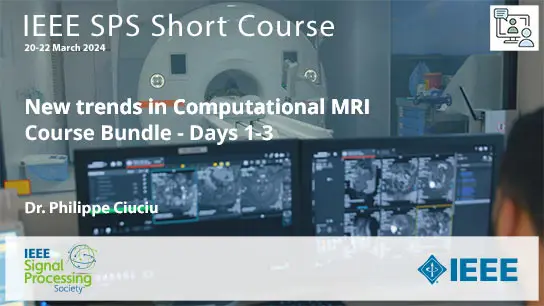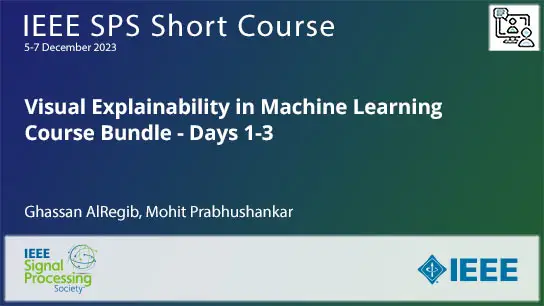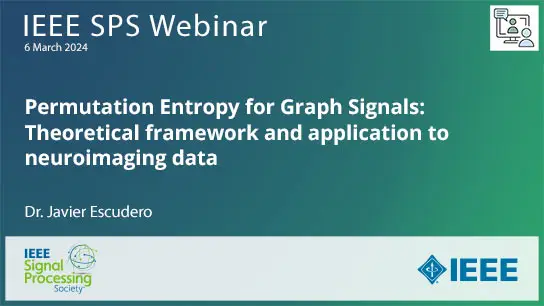22 Mar 2024
Course Overview
This course aims to summarize recent model-based and data driven approaches in accelerated magnetic resonance imaging (MRI), concerning both data acquisition and image reconstruction strategies. Hence, it will embody a review of variational methods based on optimization algorithms to implement both model-based data acquisition and image reconstruction methods and then deep learning techniques to leverage big data sets for image reconstruction and finally the design of new acquisition techniques. Prior to that, to make this course self-contained and clearly identify the novelty of the material that will be taught, the required background of MR physics for data collection in the standard setting will be introduced for multiple anatomical imaging contrasts (T1, T2, T2*, etc.). Additionally, the state of the art in classical acceleration techniques, called parallel imaging, will be reviewed as well. All these aspects are rarely covered in IEEE lectures. This course is specifically tailored to graduate students, researchers and industry professionals working in the medical imaging field who want to know more about the radical shift machine learning has introduced for MRI during the last few years. As MRI is the most widely used medical imaging technique for non-invasively probing soft tissues in the human body (brain, heart, breast, liver, etc.), training PhD students, postdocs and researchers in electrical and biomedical engineering is strategic for crossfertilizing the fields and for understanding the ML-related needs and expectations from the MRI side.
Day Three: Lectures 6 and 7.


